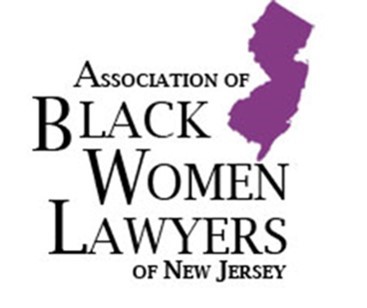Senate Approved Cultural Diversity and Bias Training for Arbitrators on Department of Education Permanent Roster
Social Justice Committee, Policy & Legislative Analysis
By: Sharon Price-Cates, Esq.

Mandates for cultural diversity and bias training are on multiple New Jersey Legislative agendas; this time in the context of primary education focusing on certain arbitrators presiding over public employment disciplinary disputes. Senators Teresa M. Ruiz and Troy Singleton are primary sponsors of S-699, with Senator Shirley K. Turner as co-sponsor. First introduced in the 2018-2019 Legislative Session, and re-introduced in the Senate on January 14, 2020, S-699 would require arbitrators on the permanent panel of labor arbitrators maintained by the Commissioner of the Department of Education ((DOE) to receive training on cultural diversity and bias.
Under the current law, fifty (50) DOE permanent arbitrators resolve tenure cases where fitness to remain employed is at stake. The arbitrator’s role, analogous to that of judge and jury, is to render a fair and impartial decision. An arbitrator’s decision is final and binding, subject to narrow grounds to vacate an award. Judges, jurors, arbitrators – everyone – have biases, whether conscious or unconscious. Available social science research on bias, particularly unconscious (implicit) bias, explains that bias may effect thoughts, what people hear, see, remember, believe and how important decisions are made. Those who are trained and aware can engage in intentional and deliberate conduct to reduce and mitigate the prospect that bias will affect decision-making and case outcomes.
The DOE panel arbitrators are required to be on the labor roster of the American Arbitration Association, be members of the National Academy of Arbitrators and have knowledge and experience in school education matters. However, the rules of those entities do not specifically address cultural diversity and bias with respect to race, gender, or other demographic or protected status and are focused more generally, for example, on arbitrators professional responsibilities to interpret and apply the retaining parties’ contracts. Recently, in an analogous context, the State of Minnesota Senate proposed S.F. No. 82 requiring that labor arbitrators appointed under their peace officer grievance-disciplinary process must complete initial and continuing training on cultural competency, racism, implicit bias and recognizing and valuing cultural diversity and cultural differences. Minn. Stat. Ann. 626.892(4).
Currently, DOE arbitrators are mandated to receive training on “conduct unbecoming an employee,” including issues related to allegations of sexual assault and child abuse, to assist arbitrators in determining cases in which conduct unbecoming an employee is the basis of the tenure charges. L. 2019, c. 45. That provision was signed into law following a New Jersey Supreme Court case vacating an arbitrator’s award that impermissibly converted a charge of “conduct unbecoming an employee” into a claim of “sexual harassment” within the meaning of the New Jersey Law Against Discrimination. Bound Brook Bd. of Educ. v. Ciripoma, 228 N.J. 4 (2017). Basing the case on a charge not brought by the school board, the arbitrator rendered an award in favor of the tenured teacher, reversing the school board’s termination, purportedly, on the ground that the school board did not satisfy LAD standards.
Thus, under S-699 the training for conduct unbecoming an employee would be expanded to include cultural diversity and bias. The New Jersey School Boards Association (NJSBA), amicus curiae in the Ciripoma case, the New Jersey Principals and Supervisors Association, the New Jersey Education Association, the American Federation of Teachers, and the New Jersey Association of School Administrators are key stakeholders, each with a specified number of arbitrators that they may appoint to the DOE roster. With one exception, all registered support for S-699 with the Senate Education Committee. The American Federation of Teachers did not register any response. The New Jersey Charter School Association and Garden State Coalition of Schools also support the bill.
Jonathan Pashman, on behalf of the NJSBA, testified before the Senate Education Committee characterizing support for S-699 as a “no brainer.” Pashman opined that the bill is even more timely than when NJSBA first voiced support earlier in the year, recognizing that “schools have a unquestionable responsibility” to eliminate bias and promote the safe and secure learning environment for all students. Because the law mandating training on “conduct unbecoming an employee” was passed in order to promote more informed decision-making by DOE permanent arbitrators, NJSBA viewed S-699 as an additional step in strengthening the provision.
Chair Ruiz (D-29, Essex), Vice-Chair Shirley K. Turner (D-15, Mercer, Hunterdon), Sandra B. Cunningham, (D-31, Hudson), James Beach (D-6, Burlington, Camden) and Samuel D. Thompson (D-12, Burlington, Monmouth, Ocean & Middlesex) voted favorably on the bill. Michael J. Doherty (D-23, Hunterdon, Somerset & Warren) voted no, explaining that he was “not aware of any particular issue or problem with these arbitration proceedings, the Commissioner is an African-American man and he certainly has the power to implement policy as he sees fit.” Nevertheless, Chair Ruiz explained that as in other areas of the law, the intent of cultural diversity and bias training is to promote awareness. Ruiz also made clear that while the DOE Commissioner is African-American, the arbitrators may be of various backgrounds, which a broader sensitivity and awareness when making decisions is the goal.
On July 30, 2020, the full Senate approved S-699 by a 39-1 vote, with no statements made on the record. The bill was referred to the General Assembly and is now pending in the Assembly Community Development and Affairs Committee.


